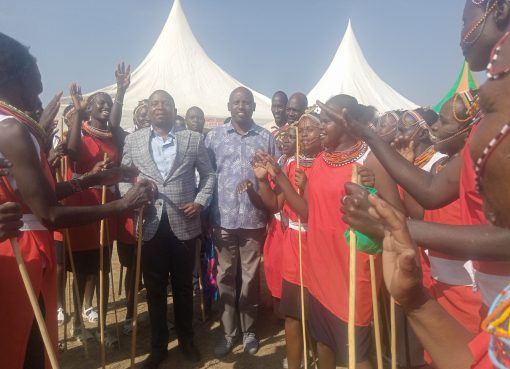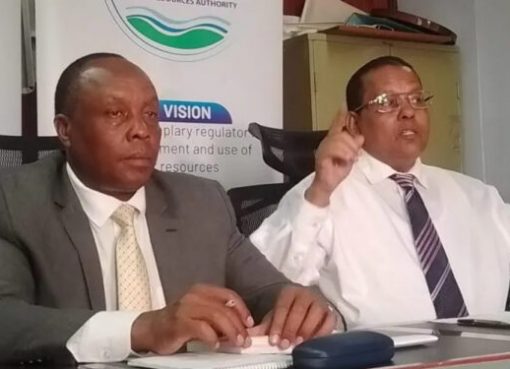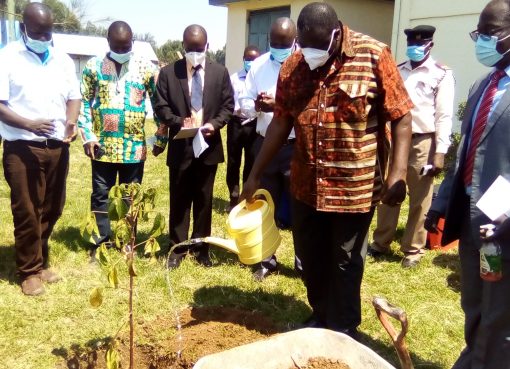The government intends to dedicate at least 1 percent of the country’s Gross Domestic Product (GDP) from a low of 0.4 percent to the social protection sector.
The Labour and Social Protection Cabinet Secretary (CS), Ukur Yatani said this move will ensure that the country’s level of investment is moving with other developing nations such as South Africa and Mauritius who are at 3 percent.
“Despite our success, we look forward to the time our country will reach the level of investment by dedicating more than 3 percent of the GDP to the social protection programmes and realizing huge benefits of investing in social protection,” Yatani said.
By and large however, the CS said that the country’s annual expenditure of Sh26 billion on social protection programmes is proof of government’s determination to cushion vulnerable populations against poverty.
In a speech read on his behalf by the Chief Administrative Secretary (CAS) for Labour, Abdul Bahari during release of the findings of the latest review of the Sh26 billion-a-year social protection sector that shows Kenya’s steady progress in cushioning its needy citizens against poverty, the CS said the government has continued to increase support to households with the poor and vulnerable persons through cash transfers.
“The number of households under Cash Transfer for Orphans and Vulnerable Children has increased from 153,000 in 2013 to 353,000 in 2017, while the number of persons under the Older Persons Cash Transfer (OPCT) has increased from 59,000 beneficiaries to 833, 000,” he said.
Yatani further added that the increase was due to the policy decision in 2017 to universal coverage of all persons over 70 years and who are not receiving government pension under the OPCT.
The CS said apart from undertaking significant improvements under the Inua Jamii programme, the government has moved to implement a universal social pension for all older person over 70 years, which has sprung Kenya into the category of leading countries in Africa in terms of investing in social protection.
Yatani noted that there has also been an increase in coverage under the Persons With severe Disabilities with Cash Transfer increase from 14,000 in 2012 to 47,000 2017.
All cash transfer programmes run by government including the Hunger Safety Net Programme in Northern Kenya are tax financed.
Yatani noted that by offering all citizens with the guarantee of income security, social protection effectively tackles poverty and inequality as well as helps build a strong and productive workforce.
“Before the end of this year, we shall as government be launching a unique social security product for the almost 15 million workers in the informal economy,” said Yatani.
Additionally, the CS said the ministry in collaboration with the National Treasury and development partners is in the process of developing regulations within the Public Finance Management (2012) for operationalization of the Social Assistance Fund.
“In the next two weeks, we will be involving public participation for their input since the government is determined to ensure that all our social assistance, social security and health insurance programmes are run in the most efficient, effective and sustainable manner not only for the current generations but also for those to come,” he said.
According to Yatani, the government is committed to continue reviewing policies and programmes, including legislative reforms to enhance the capacity and opportunities for the poor and vulnerable to improve and sustain their lives in line with the Constitution of Kenya and the bill of rights.
The CS added the Ministry will continue to address challenges of adhering to timelines for payment of cash transfers to beneficiaries of cash transfer programmes through Integrated Management Information System.
“We will keep on the positive trajectory by increasing investments and expanding the social protection programmes. This will allow us to beat existing challenges which include increased cases of older persons’ abuse and neglect that continue to affect an already vulnerable section of the population as well as inadequate data on Persons Living with Disability” he added.
Going forward, the CS said reforms in the social protection sector will see the ministry collate adequate data on persons with disability to facilitate proper planning through data collected in the 2019 national housing and population census.
The UNICEF Kenya representative, Maniza Zaman said evidence from around the world has shown that a strong social protection system can help break the devastating cycle of poverty.
Without this, she added, children from ultra-poor families lacking livelihoods and access to education, often find themselves in the same situation as their parents when they grow up and have children.
“This launch of the Social Protection Sector Review is thus an important milestone towards comprehensive social protection system in Kenya,” Zaman said.
She lauded Kenya, saying it is among the best performing countries in sub-Saharan Africa, when it comes to expanding social safety nets.
In 2004, there were just 500 households receiving social protection services in Kenya. By 2018, that number had risen to 1.2 million households, covering 5 million people across the country, according to the review.
Zaman noted the review highlights important land marks in the social protection demonstrating that the government is committed to achieving inclusive and equitable services for all.
The evidence gathered during the review process, she said, has contributed to new areas and approaches, including the introduction of the ‘Universal Inua Jamii’ senior citizen programme in 2017 and the planned introduction of a universal child benefit scheme in 2020.
The country representative explained that investing in social protection is also a key way to achieving the Sustainable Development Goals in Kenya and will help in meeting several of the targets, including Goal 1 which is No Poverty, number 2 ( Zero Hunger) and Goal number 10 (Reducing Inequality).
Zaman said we need a strong social protection workforce, in order to ensure that services reach the most vulnerable and encouraged government to continue its efforts to build a workforce that works closely with communities to deliver essential services.
By Wangari Ndirangu/Charles Kirundi




